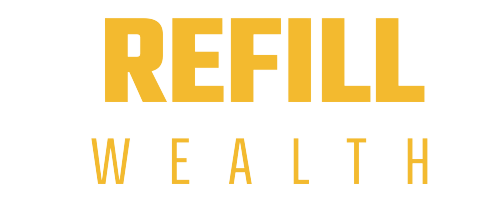Managing personal finances can be a challenging task, and it can be difficult to decide where to allocate your resources. One common dilemma is whether it’s better to pay off debt or save money. Both options have their benefits and drawbacks, so it’s essential to evaluate your individual circumstances to determine what’s best for you. In this article, we’ll explore the pros and cons of each approach and provide some tips on how to decide.
The Pros and Cons of Paying Off Debt
Paying off debt is often a top priority for people looking to improve their financial situation. Here are some advantages and disadvantages to consider:
Pros
- Saves You Money in the Long Run: When you pay off your debt, you can save money on interest payments over time. The longer you carry a balance, the more you’ll pay in interest charges, so paying off your debt as soon as possible can help you save money in the long run.
- Reduces Your Stress Levels: Debt can be a significant source of stress for many people. By paying off your debt, you can reduce your stress levels and enjoy greater peace of mind.
- Improves Your Credit Score: Your credit score is affected by the amount of debt you have, so paying off your debt can improve your credit score over time. This can make it easier to get approved for loans and credit cards with lower interest rates.
Cons
- May Require Sacrifices: Paying off debt often requires sacrifices, such as cutting back on expenses or working extra hours to earn more money. This can be challenging for some people, particularly if they’re already stretched thin.
- May Limit Your Ability to Save: If you focus all your resources on paying off debt, you may have limited funds available to save for emergencies or other financial goals.
- May Not Be the Best Use of Your Money: Depending on the type of debt you have, paying it off may not be the best use of your money. For example, if you have a low-interest rate on your mortgage, it may make more sense to invest your money in a retirement account or other investment vehicle.
The Pros and Cons of Saving Money
Saving money is another critical aspect of financial management. Here are some advantages and disadvantages to consider:
Pros
- Provides Financial Security: Saving money can provide financial security, especially in the event of an emergency or unexpected expense. By having a cushion of savings, you can avoid going into debt to pay for unexpected costs.
- Can Help You Reach Financial Goals: Saving money can help you achieve financial goals, such as buying a house, starting a business, or taking a dream vacation. By setting aside money regularly, you can work towards these goals over time.
- Can Earn You Money: Saving money in a high-yield savings account or other investment vehicles can earn you money through interest or investment returns.
Cons
- May Not Be a Priority: For some people, saving money may not be a priority, particularly if they’re struggling to make ends meet. In this case, paying off debt may be a more pressing concern.
- May Not Be Enough to Cover Emergencies: If you only have a small amount of savings, it may not be enough to cover emergencies or unexpected expenses. In this case, you may need to rely on credit cards or other forms of debt to cover the costs.
- May Be Tempting to Spend: Saving money requires discipline and self-control. It can be tempting to dip into your savings account for non-essential expenses, which can set you back in achieving your financial goals.
How to Decide
Deciding whether to pay off debt or save money depends on your individual circumstances. Here are some factors to consider
- Interest Rates: Evaluate the interest rates on your debt and savings accounts. If your debt has a higher interest rate than your savings, it may be better to prioritize paying off your debt first. However, if your savings account has a higher interest rate than your debt, it may be better to prioritize saving.
- Debt Type: Consider the type of debt you have. For example, credit card debt usually has high-interest rates, so paying it off should be a priority. On the other hand, if you have a low-interest rate on your mortgage or student loans, it may make more sense to save instead.
- Emergency Fund: Building an emergency fund should be a priority, regardless of whether you have debt or savings. Experts recommend having three to six months’ worth of living expenses saved up in case of unexpected events such as job loss or medical emergencies.
- Financial Goals: Consider your financial goals, both short-term and long-term. If you have significant financial goals such as buying a house or starting a business, saving should be a priority. If you have debt, paying it off should be a priority, but it’s important to find a balance between paying off debt and saving for your financial goals.
- Emotional Factors: Personal finance is not just about numbers; it’s also about emotions. If carrying debt is causing you significant stress, prioritizing paying off debt may be the best option for your mental health and well-being.
In conclusion, deciding whether to pay off debt or save money requires evaluating your individual circumstances and priorities. It’s essential to find a balance between paying off debt and saving for your financial goals while also building an emergency fund. By taking a thoughtful and strategic approach to your finances, you can achieve financial security and peace of mind.





